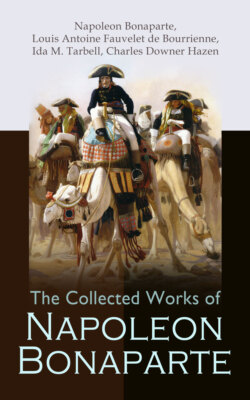Читать книгу The Collected Works of Napoleon Bonaparte - Charles Downer Hazen, Louis Antoine Fauvelet de Bourrienne - Страница 66
На сайте Литреса книга снята с продажи.
ОглавлениеMAXIM LXI.
Table of Contents
It is not set speeches at the moment of battle that render soldiers brave. The veteran scarcely listens to them, and the recruit forgets them at the first discharge. If discourses and harangues are useful, it is during the campaign: to do away unfavorable impressions, to correct false reports, to keep alive a proper spirit in the camp, and to furnish materials and amusement for the bivouac. All printed orders of the day should keep in view these objects.
NOTE.
The opinion of the general-in-chief, energetically expressed, is, notwithstanding, productive of great effect on the morale of the soldier.
In 1703, at the attack of Hornbec, Marshal Villars, seeing the troops advancing without spirit, threw himself at their head: “What!” said he, “is it expected that I, a marshal of France, should be the first to escalade, when I order YOU to attack?”
These few words rekindled their ardor; officers and soldiers rushed upon the works, and the town was taken almost without loss.
“We have retired far enough for to-day; you know I always sleep upon the field of battle!” said Napoleon, as he flew through the ranks at the moment of resuming the offensive at Marengo. These few words sufficed to revive the courage of the soldiers, and to make them forget the fatigues of the day, during which almost every man had been engaged.
